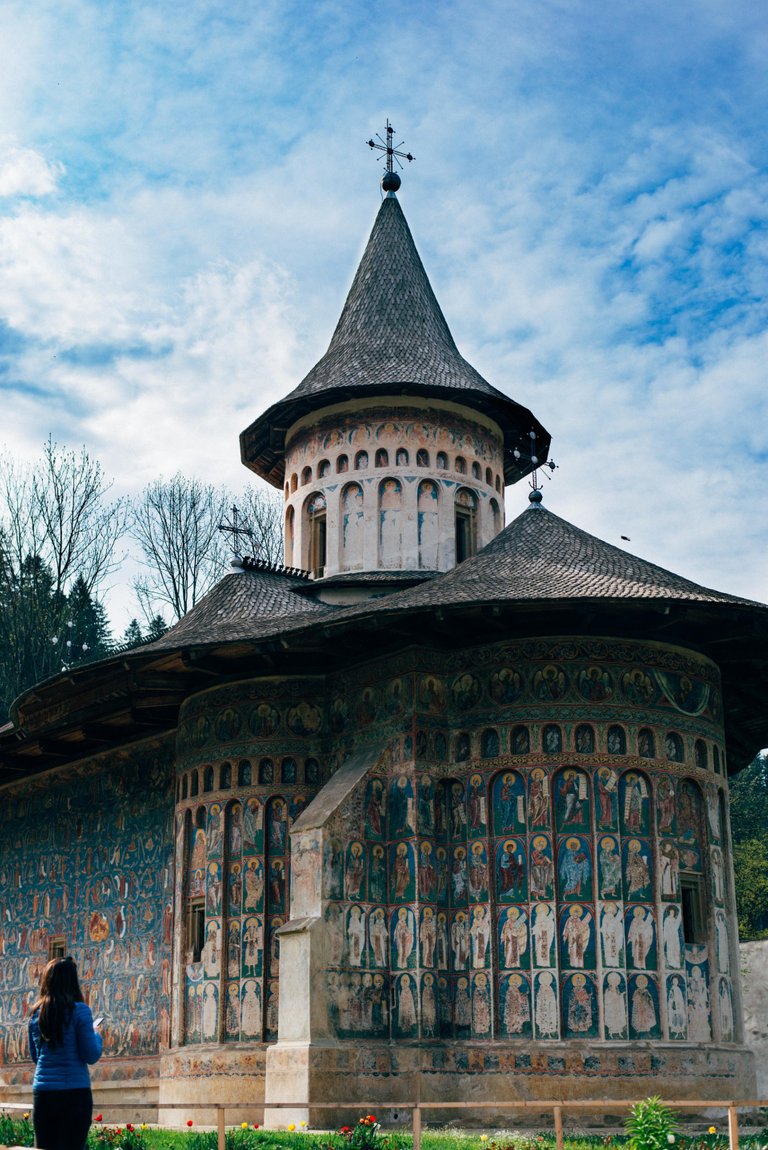
Read "God stays in mysterious places" on TravelFeed.io for the best experience
A stirred debate came into public attention last year or so, in Romania: it was started by the fact that our Patriarchy is building a hell of a cathedral in the centre of Bucharest. Of course, some were for it, especially the practising orthodox and the people that for some reason or another can't seem to find a problem with hundreds of millions of euros being spent on a colossal, no purpose, building... and it's surroundings. The ones against it, built their arguments on different things but one song, that arose during that period, put out a nice catchphrase in the Romanian culture: "God prefers wood and confined spaces"... that would be the crude translation, a phrase referring to the fact that big, empty and very expensive places shouldn't be the places in which we look for God.
That song stayed with me (inside my brain, I didn't put on the speakers) all the way around the Moldavian monasteries that I haven't seen for a while now (10-12 years).
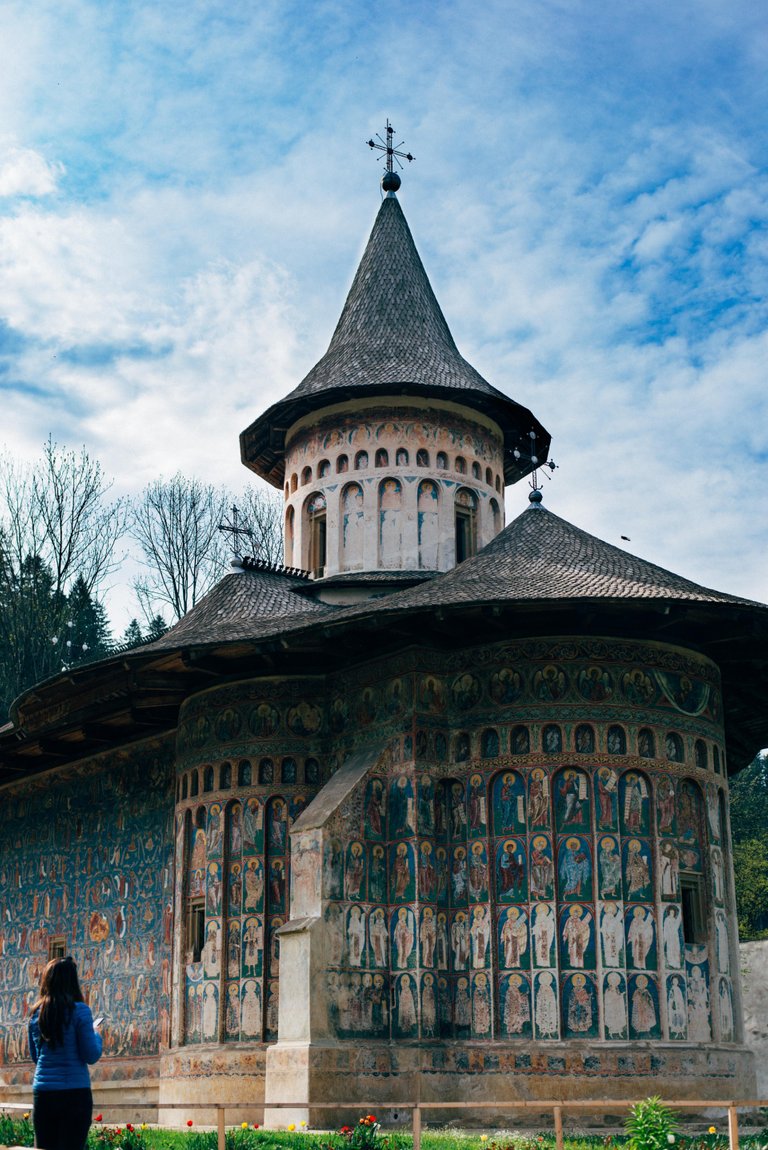
All the area of Moldavia is covered with 13-14-15th Century Orthodox Monasteries that were built both because of belief reasons but also for political ones. In a small country, like Moldavia was back then, the only way you could make it as a semi-independent territory with the Ottomans on their expansion mode was to try and have some strong, Christian allies in the West (as much as they would give a real shit about you, on the outskirts of the continent) while making a clear cultural statement in the country: we are bloody Orthodox and we won't budge in the face of the Ottoman Empire.
These monasteries were fortified back then and were last resorts in case of attack for people around the area where they were built. They had pretty solid walls around them which partly, stand up even today. The more important monasteries, like Putna for example, were real strategic defensive points on the war map of the period.
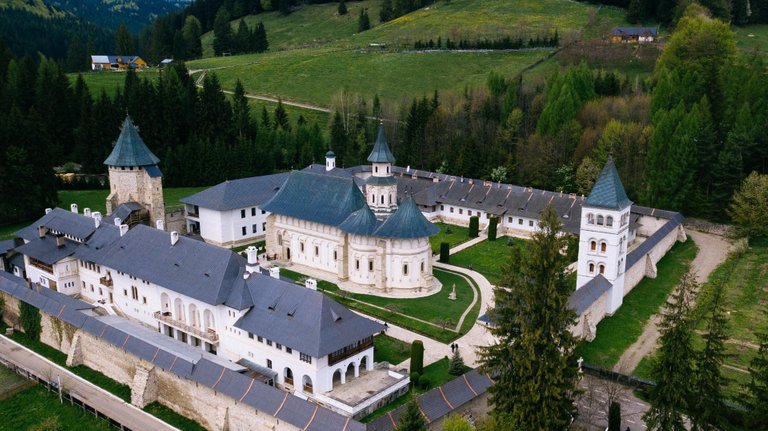
In these monasteries, for centuries, God has managed to coexist in the collective mind together with very few earthly possessions. No cathedrals, only small churches surrounded by monks rooms and walls. What little gold they had around lying in holy books and special icons, they were generally robbed by the "honourable" Ottoman Empire which when was attacking, was not necessarily winning the territory, but would rather pillage and plunder.
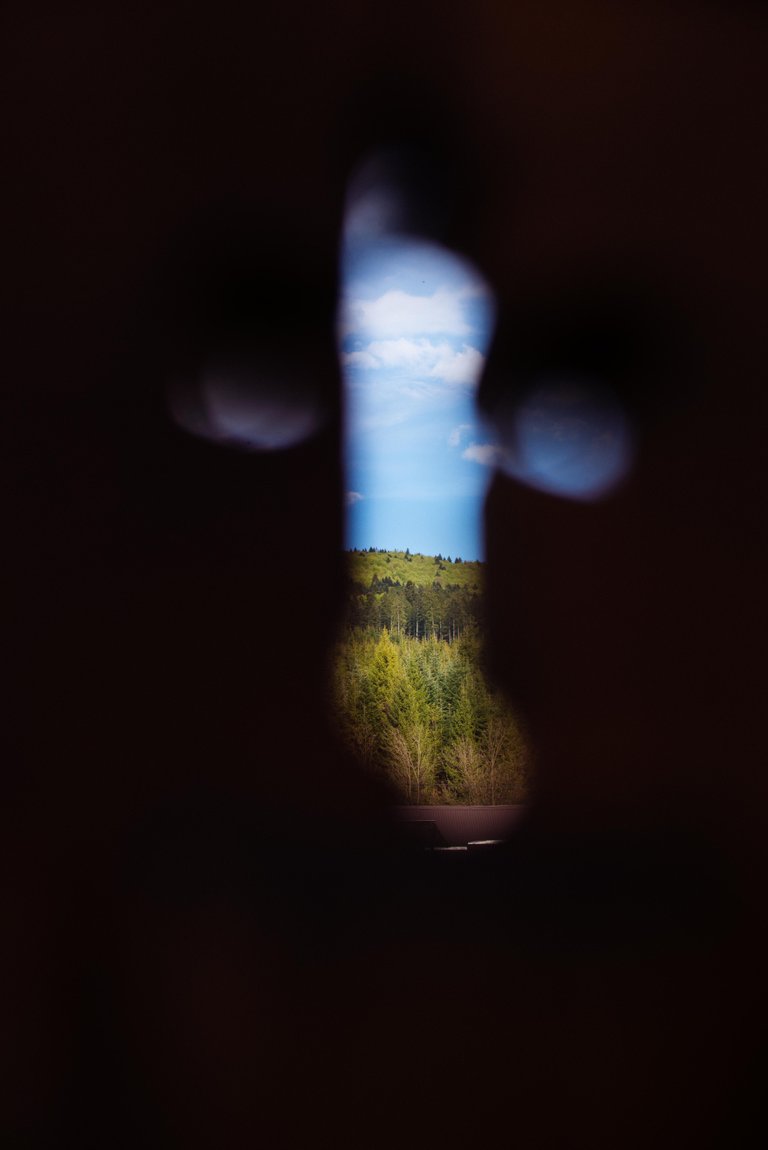
The monasteries had also the underlying role, maybe unknown clearly at the time, of keeping together what little population Moldavia had. The Middle Ages were no walk in the park and people who were not living inside the forts of the time, the peasants had little knowledge about authority and administrative things. So when the time of battles came, the ruler was relying on the trained army but when facing armies like 150-200.000 souls, what were you going to do with your 10-15.000 trained troops? You had to recruit. From the area, you were administrating, one way or another and also buy mercenaries. The monasteries became crucial in order to keep the peasants together as they had in their possession big chunks of farmable land.
They were also cultural centres where books were being written, translated and multiplied.
There was no Netflix back then so probably when some religious book was dropping into your hands, if you knew how to read, you would probably get the read of your lifetime.
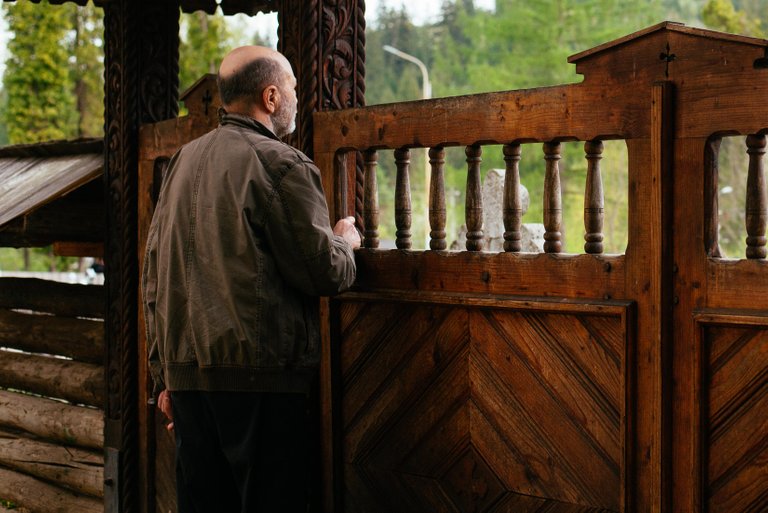
I'm not really a religious guy. Not at all. Some would even consider me "the devil's tool" for the things that I say and sometimes, for the things that I do. But it's not really the religion part that draws me to that area.
The fact that this area was so secluded to the European public for so long, keeps it mostly intact and it develops in a sort of natural way. Which of course it's not good for the monuments. Imagine that if you check closely the paintings, which I generally regarded as pieces of living art history, you will see scratches all along their base. The scratches are writings from former visitors, back in the '20s or even closer...the '70s'. Hundreds of these carvings, with names, hearts showing love, or only signatures, generally with very precise dates, were made on these hundreds of years old paintings. In many of these cases, the base of the painting is furthermore ruined by these scratches apart from the dame time brings.
"Leslie and Ștrul" 13.aug.1934 - imagine reading that on the base of Capella Sixtina together with other hundreds of signatures.
But then, the place is not so crowded now as it could be if these attractions would be glorified totally. You still get to enjoy the silence of Moldovița, the monastery I totally love. It's the place, it's the natural environment, it's the looks and it's the emotional, historical warmth for me.
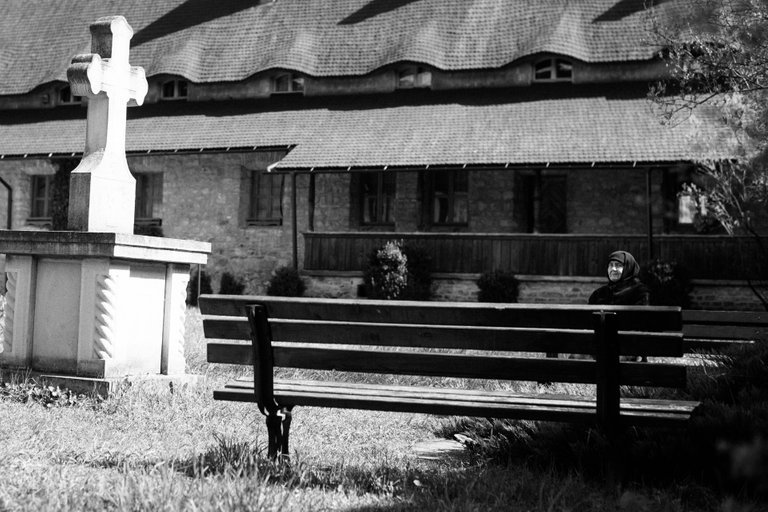
The interior yard of Moldovița is so small that I couldn't really capture the monastery with the 50mm lens I had with me. The monastery is pretty big in comparison with the interior yard. But there are bits and pieces inside that makes me think of places that Disney imagined when he drew different architecture things inside his movies.
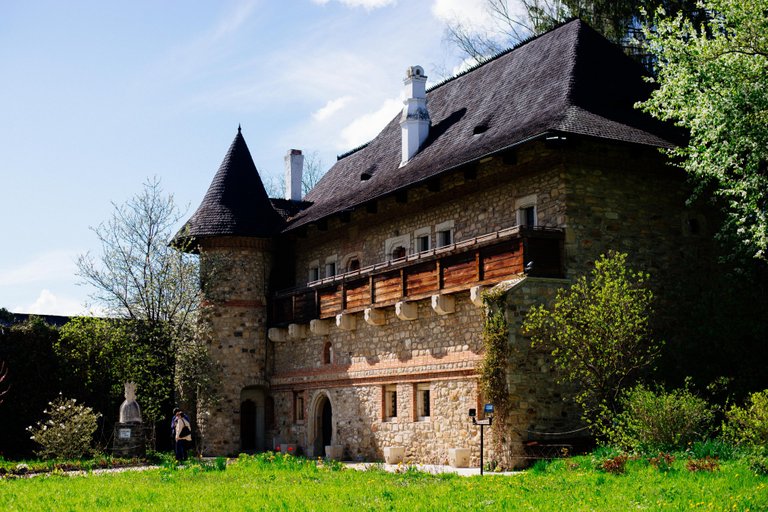
There's the "Priest House" or something like that, some sort of small, river-stone cottage built inside the wall of the place. It was destroyed almost entirely but it was rebuilt recently and is being used as a small museum. Even though the second floor is pretty new, the floors are still the original ones: big slabs of granite that has become so fine under the ages of footsteps it has supported. In different "key areas" where the traffic was most intense, the granite developed holes from all the friction so you could practically see the historical, "natural" path of the place.
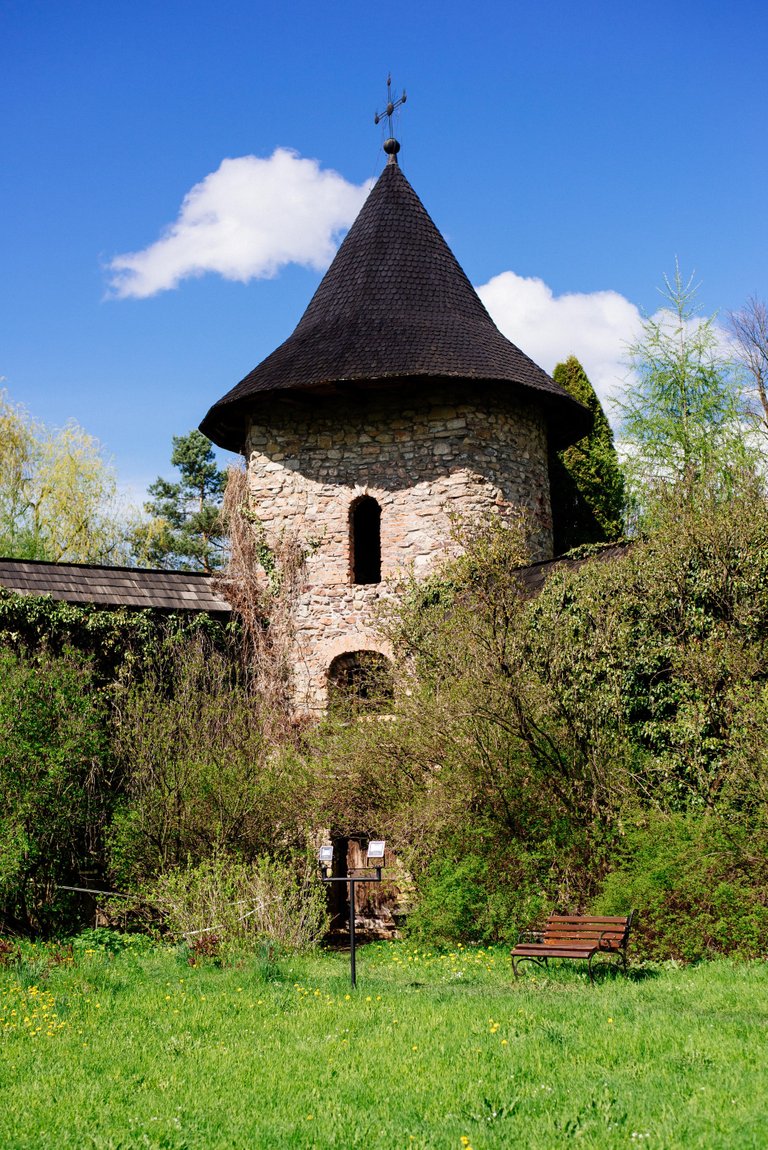
I can't guarantee that you will find God if you get the chance to check out these places.
**God is not the kind of dude wanting to be found. **
So, no matter where on this planet you search him for, you will always find him inside your heart. You don't need a building to make your acquaintance with him.
What I can guarantee is that if you're a different religion than Orthodox, you will certainly find a different culture to check out if you're going to visit. You will (still) find lush pastures and old forests. You will fall in love with the valleys and with the road winding among them. You will jump from one monastery to another (they are pretty close one to the other) and you will enjoy very good food in very good accommodation places.
From all of this mixture of good things, I'm sure that at the end you'll find a new feeling inside your humanity archetype. Maybe that's not God but it's a good, cosy feeling...
View this post on TravelFeed for the best experience.
Congratulations, Your Post Has Been Added To The Steemit Worldmap!
Author link: http://steemitworldmap.com?author=vonaurolacuPost link: http://steemitworldmap.com?post=god-stays-in-mysterious-places
Want to have your post on the map too?
Congratulations @vonaurolacu! You received a sweet smile from TravelFeed. We love your work so keep up the good job. 😊
Thanks for using TravelFeed!
@smeralda (TravelFeed team)
PS: TravelFeed is in social media to reach out more people, follow us on Facebook, Instagram, and Twitter.